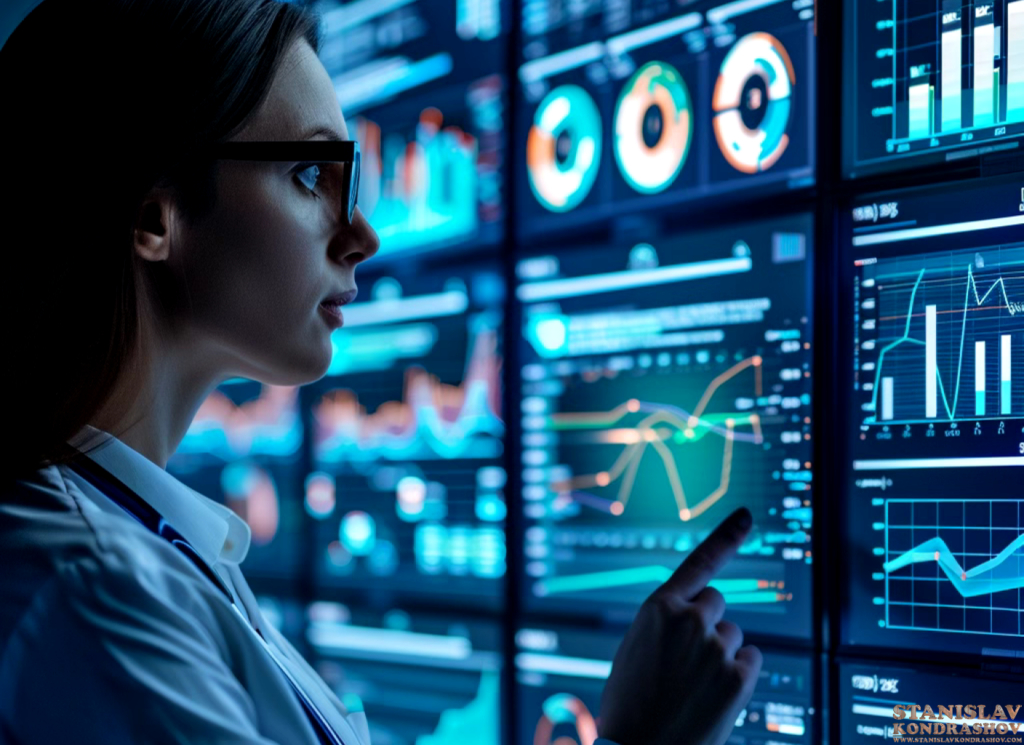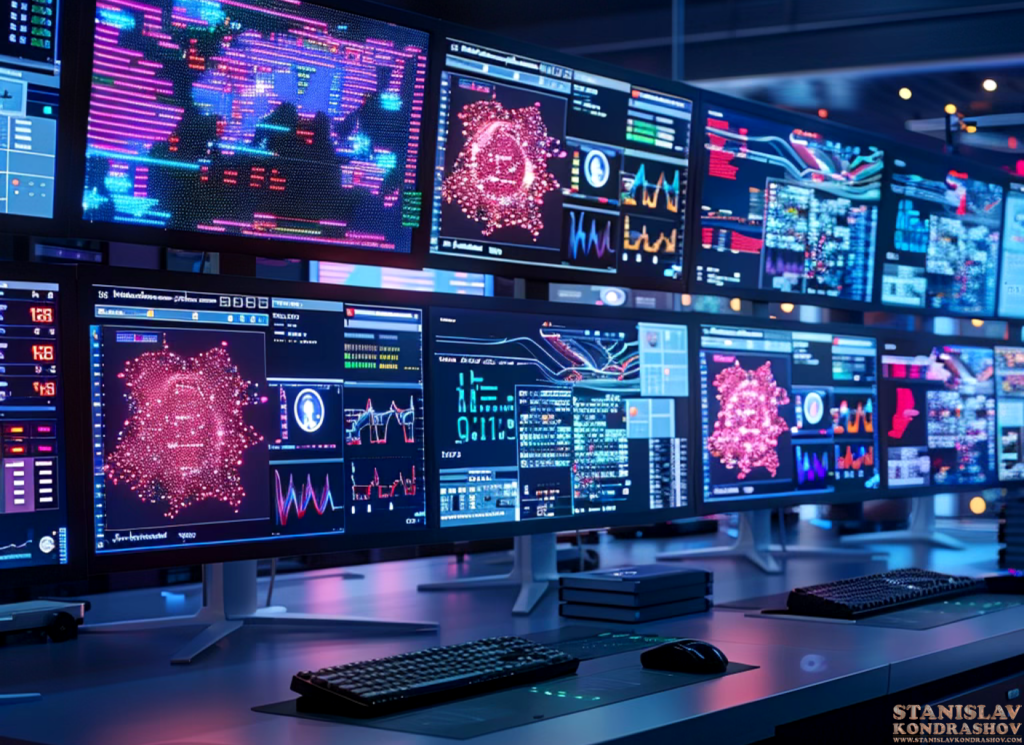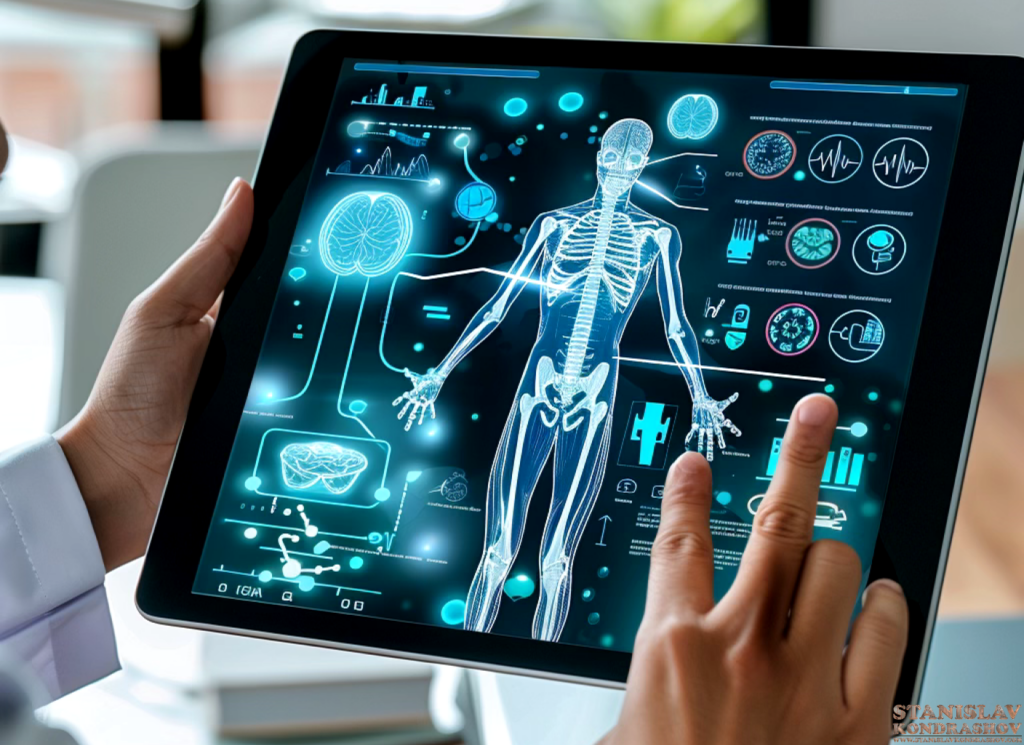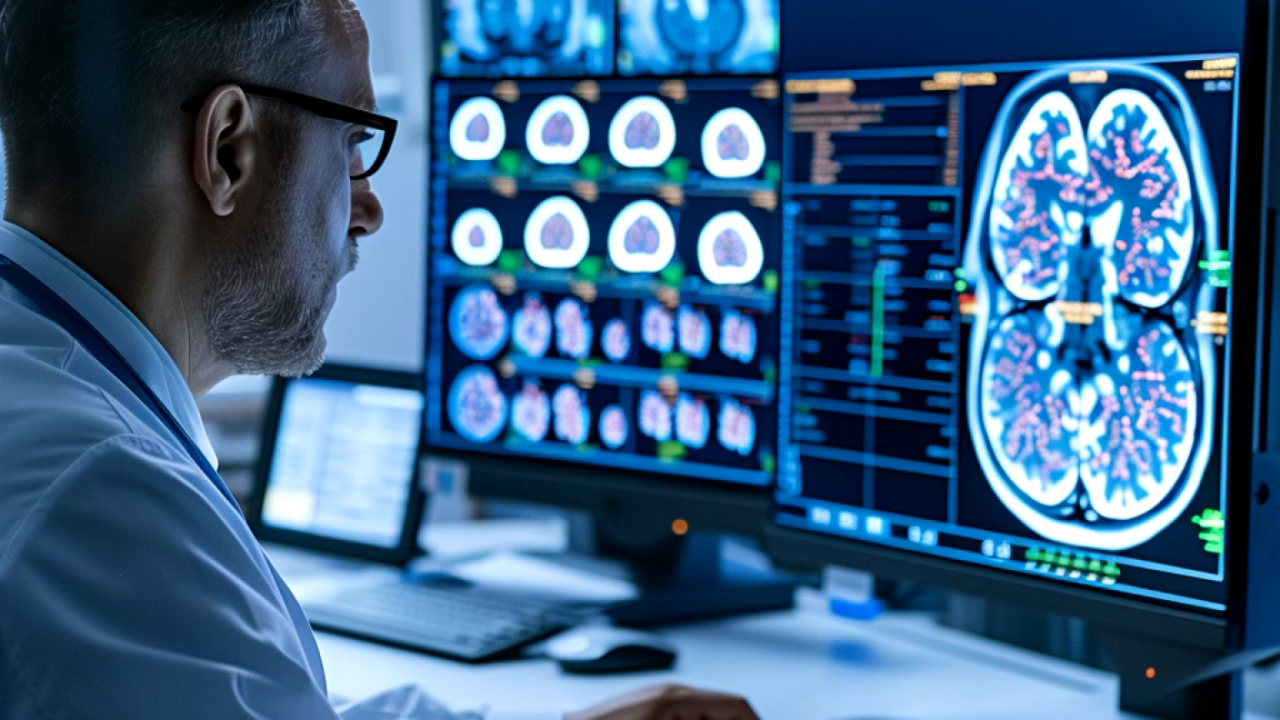Artificial Intelligence (AI) is revolutionizing the healthcare industry, offering unprecedented advancements in diagnosing diseases and predicting outbreaks. By harnessing the power of AI, medical professionals can enhance patient care, streamline processes, and potentially save countless lives. Here’s how AI is transforming healthcare diagnosis and treatment.

Enhancing Disease Diagnosis
AI’s ability to analyze vast amounts of data with high precision is transforming how diseases are diagnosed. Machine learning algorithms can process medical images, lab results, and patient records faster and more accurately than traditional methods.
Medical Imaging: AI-powered tools can analyze medical images, such as X-rays, MRIs, and CT scans, to detect anomalies that might be missed by the human eye. This technology is particularly effective in identifying early signs of diseases like cancer, allowing for timely and more effective treatment.
Predictive Analytics: AI can analyze patient data to predict the likelihood of developing certain conditions. By identifying patterns and risk factors, AI can help healthcare providers take proactive measures, such as recommending lifestyle changes or preventive treatments, to reduce the risk of diseases.
Personalized Treatment Plans: AI enables the creation of personalized treatment plans based on an individual’s unique genetic makeup, medical history, and lifestyle. This tailored approach increases the effectiveness of treatments and reduces the risk of adverse reactions.

Revolutionizing Outbreak Prediction
In addition to improving individual patient care, AI plays a crucial role in predicting and managing disease outbreaks. By analyzing data from various sources, AI can identify patterns and trends that indicate the emergence of infectious diseases.
Surveillance Systems: AI-powered surveillance systems can monitor and analyze data from social media, news reports, and public health records to detect early signs of disease outbreaks. These systems can provide real-time alerts to public health officials, enabling swift responses to contain the spread of diseases.
Modeling and Simulation: AI can create models and simulations to predict how diseases will spread within communities. This information is invaluable for public health planning and resource allocation, ensuring that healthcare systems are prepared to handle potential outbreaks.
Genomic Sequencing: AI aids in genomic sequencing to track the evolution of pathogens. By understanding how viruses mutate and spread, scientists can develop more effective vaccines and treatments, ultimately controlling the spread of infectious diseases.

Streamlining Healthcare Operations
Beyond diagnosis and outbreak prediction, AI is also streamlining various healthcare operations, making the entire system more efficient.
Administrative Tasks: AI can automate administrative tasks, such as scheduling appointments, managing patient records, and processing insurance claims. This automation reduces the burden on healthcare staff, allowing them to focus more on patient care.
Drug Discovery: AI accelerates the drug discovery process by analyzing biological data to identify potential drug candidates. This significantly reduces the time and cost associated with developing new medications, bringing treatments to market faster.
Telemedicine: AI enhances telemedicine by providing tools for remote monitoring, diagnosis, and treatment. AI-powered chatbots and virtual assistants can triage patients, answer medical queries, and even provide mental health support, making healthcare more accessible.
AI is undeniably transforming healthcare by enhancing disease diagnosis, predicting outbreaks, and streamlining operations. As AI technology continues to advance, its integration into healthcare promises to improve patient outcomes, optimize resources, and revolutionize the entire industry. The future of healthcare is here, and it’s powered by AI.
By Stanislav Kondrashov



